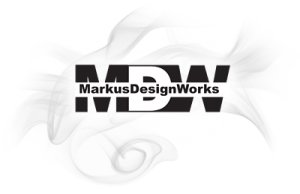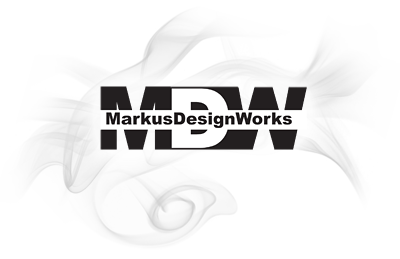Can a poorly designed or outdated website hurt my business? Well, can a poorly designed or outdated business card or brochure hurt your business? The answer is a definite YES! Like marketing materials, a website is many times the first impression potential customers have of your business or organization. Do you want to make the best of it? Of course.
Similar to a brochure, the overall mission of any website should be to inform potential customers of exactly what products or services you provide. In addition, it should also inspire them to contact you for more information. The use of images, testimonials, and video can also go a long way in motivating a website visitor to contact you either by email, phone or in person.
My website is good enough.
I am happy with “Web Design Company X” and don’t want to change.
Social media is just for kids.
These are some of the responses I have heard when you approach people about a new or updated website. Because I think having a website that gives your business or organization the best possible image is truly critical in finding or maintaining success in this economy, I will address each one of these comments one by one.
My website is good enough.
Nothing advertises a lack of interest in a business’ own marketing than outdated copyright dates, references to holidays that have long past, or information that no longer applies. A website in some ways is the online substitute for speaking with a business owner or organization directly. Would you provide visitors with outdated information? Of course not. So why leave bad information on your website?
Years ago the only process available for adding or updating content on a website involved sending the information to a web designer, and in turn, the web designer would have to make the edits to the webpages and then upload those webpages to the web host. Effective, but it took the control of timeliness and flexibility away from the business owner and put it solely in the hands of the webmaster. Today with the availability of different content management systems (CMS) like WordPress, website owners have gained a degree of control and flexibility not known before on the Internet. Now a business owner, for example, can make immediate price changes or add products or services to their website directly, themselves. All it takes is a little training and willingness to learn. This kind of immediate access can make it very easy for a website to be able to stay current and up-to-date with its content. This will then show your potential customers that you are actively engaged rather than just being content that your information in just “good enough.”
I am happy with “Web Design Company X” and don’t want to change.
Working with a web designer to accurately portray your business or organization creates the kind of business relationship than can be different from the others. Similar in some ways to an accountant or insurance agent, in order for a web designer to effectively complete their task, they must have a firm understanding of the full scope of what it is you do. This kind of ‘full disclosure’ creates a relationship of trust in which some people may have a hard time severing despite how ineffective their designer, agent, or accountant may be. This is not to say that the designer, agent, or accountant is bad or lazy. It just means that as skills or information changes, as all industries do in one way or another, some are more informed or have more effective skills than others.
For example, Company X may hold tightly to only corresponding via postal mail, where Company Y has made the jump to using email for correspondence. Both methods get the job done, but one has embraced the advances in technology where the other has not. If a better tool comes out that makes it easier and faster to complete a task, would you choose to use that tool or not? If not, why not? In this challenging economy where customers and work can be hard to come by, many are using any methods (or tools) they can to draw more business and work smarter. Are you? If you are waiting for “your guy” or “your girl” to learn those new skills or technologies or tools, how long do you plan on waiting? 30 days? 90 days? 6 months? How much more business could you have gained in that window of time? How many bills could you have caught up on? At the end of the day, the checks need to clear.
Social media is just for kids.
Initially, there was some truth to this, but oh how things have changed. What started with Myspace and a great way for people and places to connect with others, has grown into FREE and very effective marketing tools starting with Facebook and Twitter. Facebook and Twitter, for example, have become so large and so effective in pushing one’s own message out further, that in some ways they are like a whole new wing of the Internet, much like the World Wide Web was when the Internet was new.
In the mission to keep fresh content flowing on websites, Facebook and Twitter are great tools which allow a business to build a brand through the use of content, images, videos, AND conversation. The immediacy of these communication methods give website owners ways to give or receive instant feedback about their products, services, events, sponsors, etc. I must confess that when Twitter began, I heard more about someone having a great sandwich or who their favorite celeb was…information I could care less about. However, Twitter and Facebook have grown into full blown marketing tools, and even into critical sources for news agencies and blogs to be able to share headlines and content very quickly. With tools like that, the harder question is how could you NOT benefit from using them?
Here are some other articles that answer the question of “what is the price of a bad website.”
- Study Shows That Having A Bad Website Can Hurt Your Business
- How A Bad Website Can Hurt Your Business!
- What not to do – Websites That Suck
From the study linked above:
What are consumers’ attitudes toward local business websites?
66% of the survey respondents felt that one or more of the following was true:
- A good website gives a business more credibility.
- They are more likely to contact a local business if they have a website.
- They trust a local business more if they have their own website.
25% said they didn’t really care if the business had a website or not.
9% said a bad/ugly website can be a turn-off from using that business.
What do these results mean?
Your website is a reflection of your business. It affects your credibility. Make your site, clean, clear and professional.
With numbers like these and the challenges of this economy, can you really afford to let your online presence slide?





